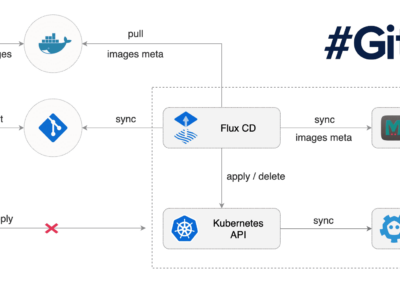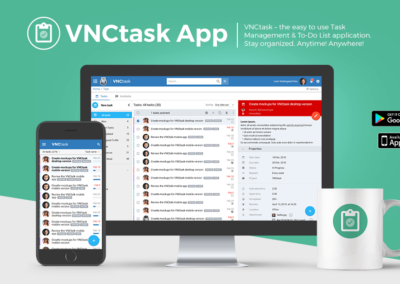When working in the office and from home, we use on average half a dozen specialized communication and collaboration apps that are not designed for cooperation. The answer to this distressing status quo is a holistic approach.
By Andrea Wörrlein, Managing Director of VNC in Berlin, Germany, and member of the Board of VNC AG in Zug, Switzerland
Perhaps one of the most important lessons learned from the pandemic-driven transformation of our working world is the inadequacy of our communication and collaboration tools. Our time working from home has shown that the landscape of tools used by employees too often resembles a patchwork quilt held loosely together: our communication and collaboration is done through services like messenger, email, calendar, task management, project management, social media and video conferencing. However, seamless data exchange, intuitive interaction and reliable interoperability are wishful thinking in this mess. Instead, we have to deal with incompatibilities, discontinuities and a proliferation of user interfaces.
But wishes are made to be fulfilled. Especially since there are good, rational reasons for a holistic solution, including avoiding sources of error, increasing efficiency, saving time, cost advantages – not to mention higher acceptance and satisfaction among employees. So why is there still no universal, integrated collaboration system? Because the market is still dominated by specialists. One has a usable messenger, the other an acceptable video conferencing system. How do the two interact? Good question.
In overcoming the fragmented collaboration landscape, we should be wary of looking for the solution in an “all in one” monster. Over-complexity would be pre-programmed in the truest sense of the word, and adapting to a company’s specific requirements would be a time-consuming act of violence. A more effective solution is a module set of solo applications that are based on a common code base, can be operated via a common master app that integrates all programs and controls their interaction. This is no longer wishful thinking, but already a proven reality.
This principle also meets the expectations of young users, who recognize design, appearance and operating logic similarities between their own personal experiences with social networks and the programs they use professionally. The gap between the IT experiences in private life and the working world is thus narrowed, the acceptance of professional tools is greater and the handling of them is more efficient. Additional functions can be integrated to relieve various workload burdens, such as an Agile Board with a chatbot-like robot that takes over task planning and automatically prioritizes, compares and assigns pending tasks. The user no longer has to worry about planning their own day and can use the time more meaningfully – for example, by collaborating with others in a space designed for colleagues to share ideas, which a holistic tool offers. It thus serves as a dynamic platform where employees can contribute their own ideas for the benefit of the company.
Open source offers the perfect basis for such a holistic platform. The worldwide developer community can build on identical tools and proven, reusable backend solutions. Both are constantly being developed and perfected. The results of this process are immediately available to all participants. The rate of innovation, the degree of perfection and the breadth and depth of functionality can thus be constantly adapted to changing wishes and needs. In this sense, wishful thinking does not have to stop at all – on the contrary.
Seamless Communication and Collaboration: The New Normal for Today’s Enterprise
VNC is a global software corporation that develops open source communication and collaboration applications for large organizations. With its interdisciplinary, high professional developer team, VNC has created an integrated suite of enterprise applications that offer a secure alternative to the established software giants. Now it is possible to collaborate with anyone, from anywhere, on any device, under the strictest privacy standards available while retaining the right to digital sovereignty. VNC – Virtual Network Consult AG, is based in Switzerland, Germany and India, serving a variety of system integrators, financial institutions, network organizations, telcos, non profit groups, healthcare providers, and government agencies and more. For more information visit: https://vnclagoon.com, Twitter @VNCbiz and LinkedIn.
Contact
Andrea Wörrlein
VNC – Virtual Network Consult AG
Poststrasse 24
CH-6302 Zug
Phone: +41 (41) 727 52 00
aw@vnc.biz
Franziska Fricke
PR-COM GmbH
Sendlinger-Tor-Platz 6
80336 München
Phone: +49-89-59997-7o7
franziska.fricke@pr-com.de
























